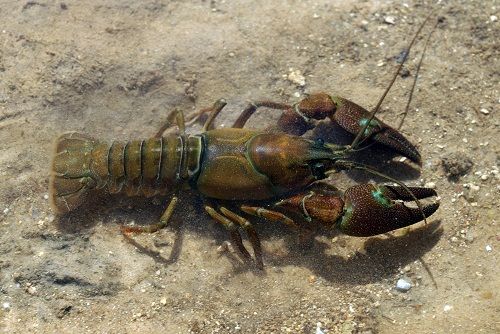Since the EU condemned a number of invasive species last year, Danes have handed over thousands they were keeping as pets to the authorities .
Among the invasive species delivered are 300 red-eared slider turtles, four muntjac deer and a whopping 38,000 signal crayfish.
“It’s a really good result, considering that the animals could have been just released into the wild, where they can do considerable damage,” said Helene Nyegaard Hvid, a biologist with the environmental protection agency Miljøstyrelsen.
“It’s essential that people never release their pets into nature, but bring them to us in a responsible manner. Now that the sale of some pets has been banned, we want to ensure they don’t end up in nature. Our main goal is to prevent invasive plants and animals from spreading and out-competing indigenous species.”
READ MORE: EU condemns a dozen invasive species in Denmark
Billions at stake
In August last year, the EU made it illegal to maintain, breed and trade 37 different animal and plant species as they are considered invasive – 12 of the species on the EU banned list are found in Denmark.
Since the ban, the animals handed into the authorities have been kept responsibly at institutions and associations that Miljøstyrelsen has entered into agreements with until the animals die naturally.
People are still permitted to keep their invasive pets until they die naturally, but they must ensure that they don’t escape into nature or breeds. It’s also legal to catch an animal, such as the signal crayfish, and take it home to eat.
The EU spends roughly 90 billion kroner a year tackling invasive species in Europe.















